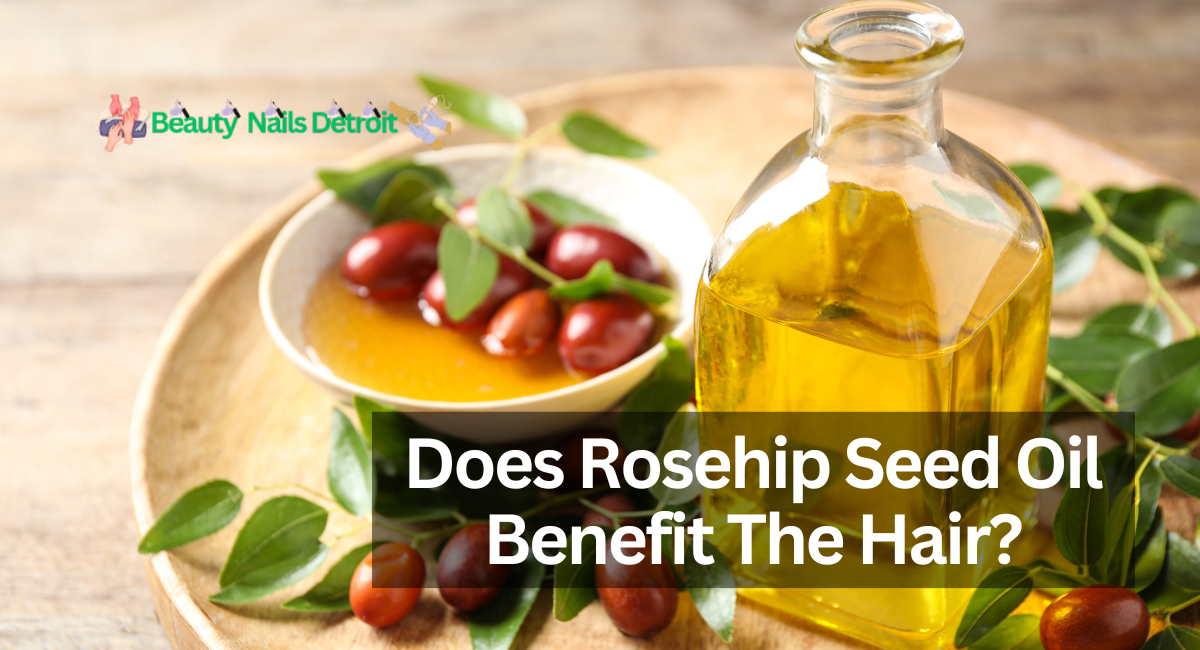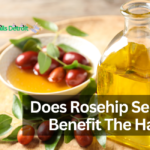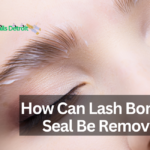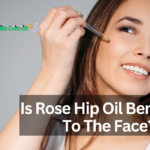Regarding natural attractiveness, only a limited number of substances can compete with the profound effects exhibited by rosehip seed oil. This botanical marvel has been revered for centuries due to its extraordinary skincare benefits extending beyond the epidermis.
Upon further examination of hair care, rosehip seed oil is revealed to be a potent elixir that provides numerous benefits for the health and vitality of hair. The seemingly endless benefits of rosehip seed oil include strengthening strands, cooling the skull, and imparting a radiant sheen.
Does Rosehip Seed Oil Benefit The Hair?
The unique composition of vitamins, antioxidants, and essential fatty acids in rosehip seed oil can benefit hair health. The following are several advantages that rosehip seed oil can provide for your hair:
1. Nourishes And hydrates
Fatty acids, including linoleic acid and oleic acid, abundant in rosehip seed oil, nourish and thoroughly moisturize the hair and scalp. It aids in moisture retention, dehydration prevention, and overall hair texture improvement.
2. Facilitates Scalp Health
Applying rosehip seed oil to the scalp via massage can alleviate irritation, diminish dandruff, and foster a more salubrious scalp milieu. It may mitigate itching and flaking, establishing a more favorable environment for hair growth.
3. Fortifies Hair
Rosehip seed oil is rich in antioxidants and vitamins, especially vitamins A and C, which contribute to the fortification and resilience of hair. This can reduce split ends and breakage, resulting in hair that appears healthier.
4. Enhances Sheen And Smoothness
By incorporating rosehip seed oil into the lengths of one’s hair, one can augment both sheen and suppleness. It aids in controlling curls, enhances the hair’s manageability, and imparts a glossy shine.
5. Facilitates Hair Growth
Some hypothesize that the fatty acids and antioxidants of rosehip seed oil may promote hair growth by fostering a healthier scalp environment, although additional research is required.
6. Safeguards Against Environmental Harm
The rosehip seed oil contains antioxidants, specifically vitamin C, which protect the hair from environmental damage induced by UV rays and pollutants.
What Drawbacks Does Rosehip Oil Possess?
Although rosehip oil is generally well-tolerated by most individuals, it, like any other haircare or hygiene product, may cause adverse effects or disadvantages in some people. Several factors warrant consideration:
- Although uncommon, specific individuals may experience allergic reactions to rosehip oil. Always conduct a patch test before applying rosehip oil to a larger area to identify potential adverse reactions, including irritation, redness, or stinging.
- Rosehip oil has a comparatively low comedogenic potential, indicating that it is less prone to causing pore blockage than certain other types of oils. However, rosehip oil may obstruct pores or exacerbate acne in individuals with highly oily or acne-prone skin. Applying it in moderation is recommended, and ceasing use if it induces acne.
- Rosehip oil, similar to numerous other natural oils, is susceptible to oxidation and degradation when exposed to light, heat, and air. This may result in a reduction in its efficacy and the depletion of some of its advantageous attributes. Rosehip oil quality can be preserved by using it within its recommended shelf life and storing it in a cold, dark location.
- The natural pigments in rosehip oil, which give it a vibrant orange-red hue, can stain garments and fabrics if not completely absorbed or used excessively. Apply it with caution to prevent staining.
- Certain individuals may develop a sensitivity to specific constituents found in rosehip oil, particularly those with a documented allergy to Rosaceae family plants, including roses. It is imperative to exercise caution regarding potential adverse reactions and cease usage in the event of irritation.
Is Rosehip Oil More Beneficial For Hair Growth Or Castor Oil?
Although both castor oil and rosehip oil provide advantages for hair, they operate through unique mechanisms and possess unique characteristics that may promote hair health and potentially stimulate hair growth:
Oil Of Castor For Hair Growth
- This exceptionally emollient oil can soothe the scalp, potentially promoting hair growth and alleviating irritation.
- Given its conditioning properties, some claim castor oil can make hair appear thicker and fuller.
Oil Of Rosehip For Hair
- Rosehip oil is an excellent source of essential fatty acids, vitamins, and antioxidants, which nourish the scalp and promote a healthy environment for hair growth.
- It can augment the hair’s overall texture, resulting in a more refined, reflective, and controllable appearance.
- Rosehip oil’s vitamins and antioxidants can fortify hair strands, thereby diminishing the occurrence of breakage and split ends.
Leveraging the inherent capabilities of plants, rosehip seed oil functions as a superhuman in the realm of hair care, revitalizing hair follicles, reinstating hydration, and augmenting the overall quality of hair. Rich in vital fatty acids, vitamins, and antioxidants, it revitalizes drab, lifeless strands and nourishes the scalp, among other benefits. By incorporating rosehip seed oil into your hair care regimen, you can anticipate braids that are more radiant, robust, and healthy.
I appreciate your reading.










